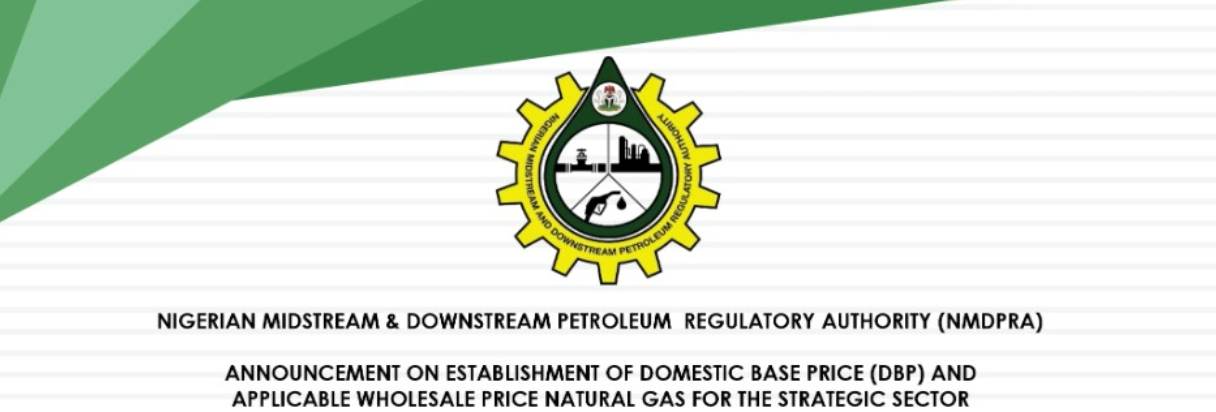In an apparent move to enthrone transparency and create an enabling environment for growth and more investments in the Nigerian upstream oil and gas sector, the Nigerian Upstream Petroleum Regulatory Commission (NUPRC) has signed into law seven (7) priority Regulations.
The Commission Chief Executive, Engr. Gbenga Komolafe signed the seven concluded Regulations into law on Thursday in Abuja.
TheFact Daily reports that the seven regulations signed and issued by the Commission brought to 12 the total number of regulations now gazetted, out of the 18 regulations initially identified as priority regulations.
Engr. Komolafe who described the Regulations as revolutionary in intent and spirit, assures of their capabilities in addressing the mountainous challenges of the sector.
Specifically, he said, one of the Regulations would address the 40 percent metering losses bedevilling the sector and draining the nation’s oil revenues.
“Let me tell you one of the motivations for that regulation. On assumption of office, we commissioned a study. The outcome of that study revealed to us that about 40 percent of what was attributed as losses was metering losses.
“Therefore, why kinetic effort is being concentrated to curb crude oil theft, there should be non-kinetic effort in curbing metering losses. 40 percent is actually substantial.
“The only way we think it will be addressed is by putting in place a potent regulatory tool. Some of these regulations we put in place are quite noble and revolutionary in intent and spirit.
“It is going to be a clear departure from our trajectory in oil and gas production, exploration and evacuation in Nigeria.
“With effective implementation of that regulation, we will be able to curb the losses, which will significantly increase the revenue of the Federation”, he said.
The NUPRC boss said, the seven (7) regulations were part of the thirteen (13) draft regulations presented for discussion during the 1st, 2nd and 3rd phase of the Commission’s consultations with stakeholders between 2022 and 2023.
These are: Upstream Petroleum Fees and Rents Regulations, Upstream Decommissioning and Abandonment Regulations, Unitization Regulations
Acreage Management (Drilling & Production) Regulations, Frontier Exploration Fund Administration Regulations, Upstream Environmental Remediation Fund Regulations,
Upstream Petroleum Safety Regulations,
Upstream Petroleum Environmental Regulations, Upstream Petroleum Measurement Regulations, Advance Cargo Declaration Regulations
Significant Discovery Regulations,
Domestic Crude Oil Supply Obligation Regulations, Gas Flaring and Venting (Prevention of Waste and Pollution) Regulations.
He attributed the disparity of figures in the sector to regulatory overlap, however, assured that the issue has been resolved with the signing of Petroleum Industry Act (PIA) by President Muhammadu Buhari.
He recalls a situation where the commission did not have line of sight to some terminals to capture comprehensive figures, but said, that has been addressed.
On addressing the concerns of Host Communities, he said, the Commission prioritize the Development of the Host Community Regulation which provides templates for effective implementation of the Host Community Development Trust.
“To the best of our knowledge as a Commission, implementation of that regulation is progressing seamlessly”, he said.
Engr. Komolafe said, “the Host Community component of the PIA is large and the implementation is in phases. So now, what the Commission has done, the Commission has provided a clear basis for the implementation of that regulation and the fund.
“The Commission has partnered with the Original Equipment Manufacturers (OEM) to develop a digital automated platform to aid the implementation”, he said.
Also speaking, the Executive Secretary, NEITI, Dr. Orji Ogbonnaya Orji said, the NEITI found in NUPRC an emerging agency of courage, an emerging agency of vision, an emerging agency that was ready and willing to collaborate and push the boundaries of transparency and accountability in the industry.
He said, the NEITI Reports disclosed that since 1956-1957 that the oil was found in Nigeria, there was no Law regulating the industry except, regulations, directives, memos and authorities.
He noted that about 619.7million barrels of crude oil were lost, either stolen or not accounted for, amounting to $46. 16billion, which if converted to Naira in official exchange rate would give N16.25 trillion that Nigeria lost by crude.
Dr. Orji said, “there is no nation that I am aware of that can survive with this kind of arrangement and our country is going at borrowing, looking for money to fund key national infrastructure; road, water, electricity, education that will be able to stabilize this country and makes us live as a socially harmonious society.
“Sir, you have taken a very fundamental step. My presence here is to affirm that NEITI will be your ally in this journey”, he said.







































